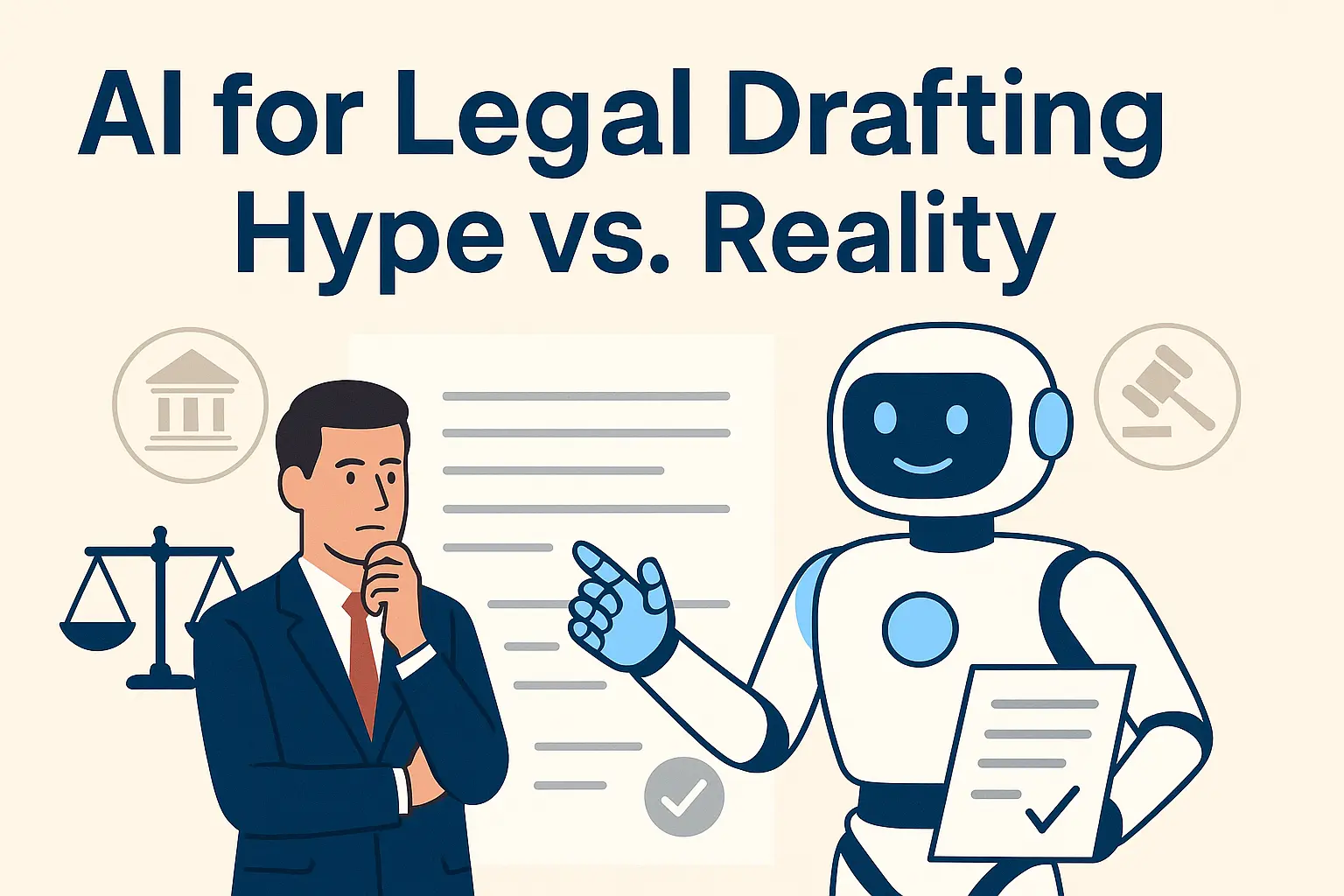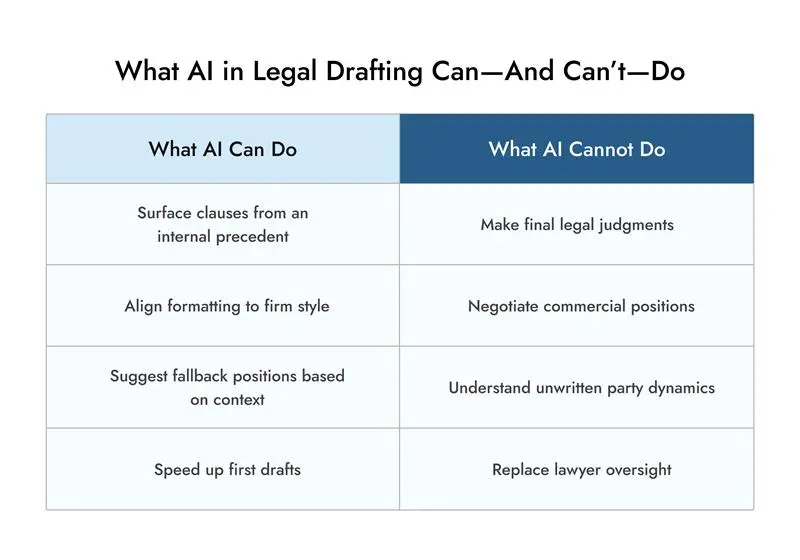
AI in Legal Drafting: Hype vs Reality
Legal AI has reached a turning point. Once considered experimental, it is now embedded in drafting workflows at firms operating across multiple jurisdictions. But misconceptions still linger. Can AI really handle legal drafting? And where is it actually being used?
This article separates the hype from the reality. It outlines how modern law firms are using AI to support legal drafting—without losing oversight, judgement, or jurisdictional precision.
The Misconception: AI Will Replace the Lawyer
A common myth is that AI will generate entire contracts and make the junior lawyer obsolete. That assumption oversimplifies how drafting actually works.
Legal drafting is not just a fill-in-the-blanks exercise. It involves applying judgement, negotiating nuance, and tailoring language to deal-specific risks. AI may support this process, but it cannot replace the decision-making or accountability that legal professionals provide.
The Reality: AI Supports, Lawyers Decide
Here's how firms are adopting AI in their drafting workflows.
Clause Retrieval and Comparison
Qanooni helps lawyers locate relevant clauses from prior work, filtered by matter type, jurisdiction, and structure. Instead of starting from scratch, lawyers begin with language that already aligns with firm-approved precedent.
"Firms using Qanooni report over 50% faster first drafts, with no compromise in quality or oversight."
Alignment with Firm Style
The platform learns the language and formatting your team already uses. It prioritises consistency over automation. Lawyers stay in full control while reducing time spent on repetitive edits and structure cleanup.
Jurisdictional Awareness
Qanooni supports drafting across common and civil law systems, including regulatory and commercial frameworks in the UK, UAE, DIFC, ADGM, and beyond. It recognises clause patterns, legal concepts, and drafting conventions appropriate to each jurisdiction.
Drafting Acceleration with Full Oversight
AI recommendations are always optional. Lawyers can accept, reject, or modify suggestions as needed. This ensures the drafting process remains transparent, explainable, and aligned with legal ethics.
So What Can AI in Legal Drafting Actually Do?
AI can assist with legal drafting by surfacing relevant clauses, aligning formatting, suggesting fallback positions, and learning firm-specific language. It speeds up the first draft without eliminating legal judgement.
According to a recent Law360 article, AI in drafting is most effective when used to reinforce internal best practices, not override them.
What AI in Legal Drafting Can—and Can't—Do

Qanooni: Built Around the Way Lawyers Actually Work
Qanooni is designed to support legal professionals, not replace them. Whether you're drafting for a private equity deal in London, a bilingual lease in Dubai, or a technology agreement in a regulated sector, the platform adapts to your jurisdiction and your practice group.
It surfaces clauses from your internal work product, recommends fallback language, and applies your formatting preferences. Everything happens inside Microsoft Word, with no new interface to learn and no disruption to how your team works.
You remain in control while working faster, more consistently, and with greater confidence in the language you send to clients.
What Success Looks Like
Legal teams using Qanooni consistently report:
- Over 50% reduction in time to first draft
- Increased consistency across deal teams and offices
- Stronger internal alignment on fallback language and clause risk
- More time for high-value client interaction
These benefits are not hypothetical. They are being realised now by firms operating across multiple jurisdictions and practice areas.
Frequently Asked Questions
Can AI legally assist in drafting contracts?
Yes. AI tools like Qanooni support the drafting process but do not replace the lawyer's role. Final review and legal advice always remain human-led.
Will this reduce the need for junior lawyers?
Not at all. It changes how they work. Junior lawyers spend less time searching for language and more time reviewing, editing, and learning from real precedent.
Does Qanooni comply with professional standards?
Yes. It supports firms operating under UK, UAE, DIFC, and other major regulatory frameworks. Outputs are editable, jurisdiction-aware, and data-residency compliant.
Can it handle complex multi-jurisdictional agreements?
Yes. The platform identifies and aligns relevant clauses based on governing law, transaction type, and structural differences across jurisdictions.